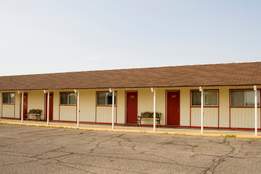
Latin and Greek Pluralization
Some English nouns of foreign origin retain the foreign plural; most of them also have a regular English -s or -es plural, which is often preferred by many writers. We will not be mentioning those regular plural suffixes in our guide, only the foreign inflections.
We begin with the most commonly Anglicized words in the English language, those coming from Latin and Greek.
Rules for foreign plurals of Latin-derived words
For words ending in -a, -a is changed to -ae: antenna to antennae.
For words ending in -um, -um is changed to -a: addendum to addenda.
For words ending in -us, -us is changed to -i: fungus to fungi.
For words ending in -ex, -ex is changed to -ices: index to indices. The same is for words ending in -ix: appendix to appendices.
For some words ending in -x, -x is changed to -g and -es is added: phalanx to phalanges.
Rules for foreign plurals of Greek-derived words
For words ending in -ion, -ion is changed to -ia: criterion to criteria.
For words ending in -ma, -ta is added: dogma to dogmata.
Here are a few unique plurals of Greek-derived English words: necropolis to necropoleis, cyclops to cyclopes, Logos to Logoi.
Rules for foreign plurals of both Latin- and Greek-derived words
For words ending in -on, -on is changed to -a: phenomenon to phenomena.
For words ending in -is, -is is changed to -es: basis to bases (Latin); hypothesis to hypotheses (Greek). -Ides is also used to pluralize certain -is words: chrysalis to chrysalides (Latin and Greek).

Italian Pluralization
A comparatively small number of Italian plurals have become Anglicized. For words ending in -o, -o is changed to -i: paparazzo to paparazzi. The same is true for words ending in -e: dilettante to dilettanti. -I functions as the English plural suffix -s in the Italian borrowing monsignor: monsignori.

French Pluralization

The Miscellany of Foreign Plurals
In Hebrew, the plural suffix -im can be considered the counterpart to English's -s: cherub to cherubim, seraph to seraphim. There are also the -ot and -oth suffixes that are used in English: yeshiva to yeshivot, halakah to halakoth.
Arabic borrowings have an -in or -een suffix that functions like -s: fellah to fellahin also fellaheen.





